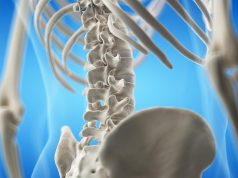Reduced odds of complications and resource utilization with PNB in knee/hip arthroplasty
FRIDAY, April 8, 2016 (HealthDay News) — For patients undergoing hip or knee arthroplasty, the use of peripheral nerve block (PNB) is associated with lower likelihood of complications and reduced resource utilization, according to a study presented at the 41st Annual Regional Anesthesiology & Acute Pain Medicine Meeting on April 2 in New Orleans.
Stavros G. Memtsoudis, M.D., Ph.D., from the Hospital for Special Surgery in New York City, and colleagues examined the correlation between the use of PNB with perioperative outcomes and resource utilization. Data were obtained from the national Premier Perspective database (2006 to 2013) for 1,062,152 total knee/hip arthroplasty procedures.
The researchers found that 17.9 percent of patients received a PNB; from 2006 to 2013 there was a specific increase from 15.2 to 24.5 percent among knee arthroplasty patients. Use of PNB correlated with significantly lower odds for most complications after adjustment for relevant covariates. Comparing those with versus those without PNBs, the strongest effects were seen for wound complications and cardiac complications in hip and knee arthroplasty patients, respectively (odds ratios, 0.54 and 0.72, respectively). For resource utilization, patterns were similarly beneficial.
“Considering the relatively infrequent use of PNBs, our study results suggest that a wider implementation of regional anesthetic techniques could potentially have a major positive impact on both medical and economic outcomes,” Memtsoudis said in a news release from the Hospital for Special Surgery.
Copyright © 2016 HealthDay. All rights reserved.








